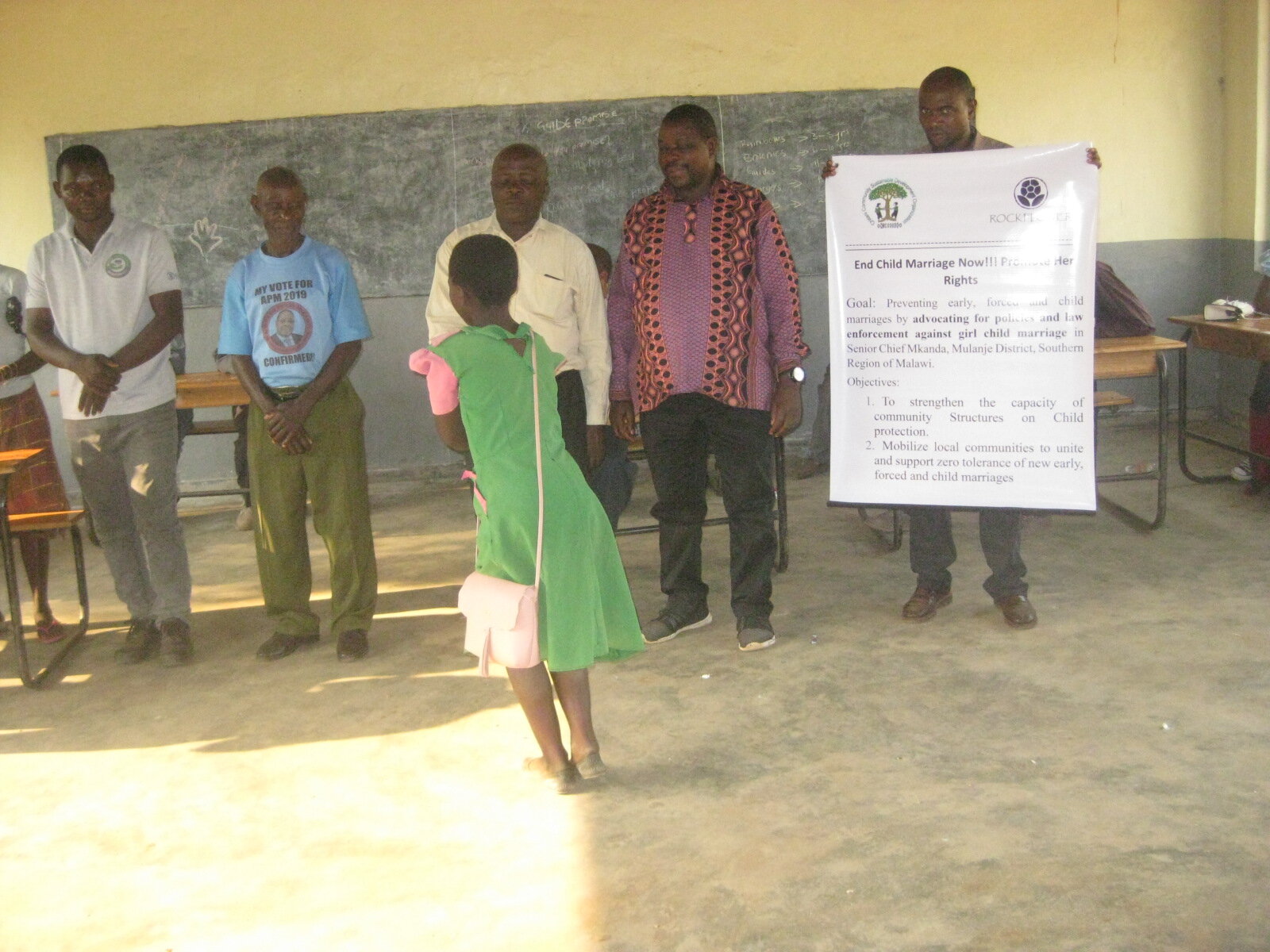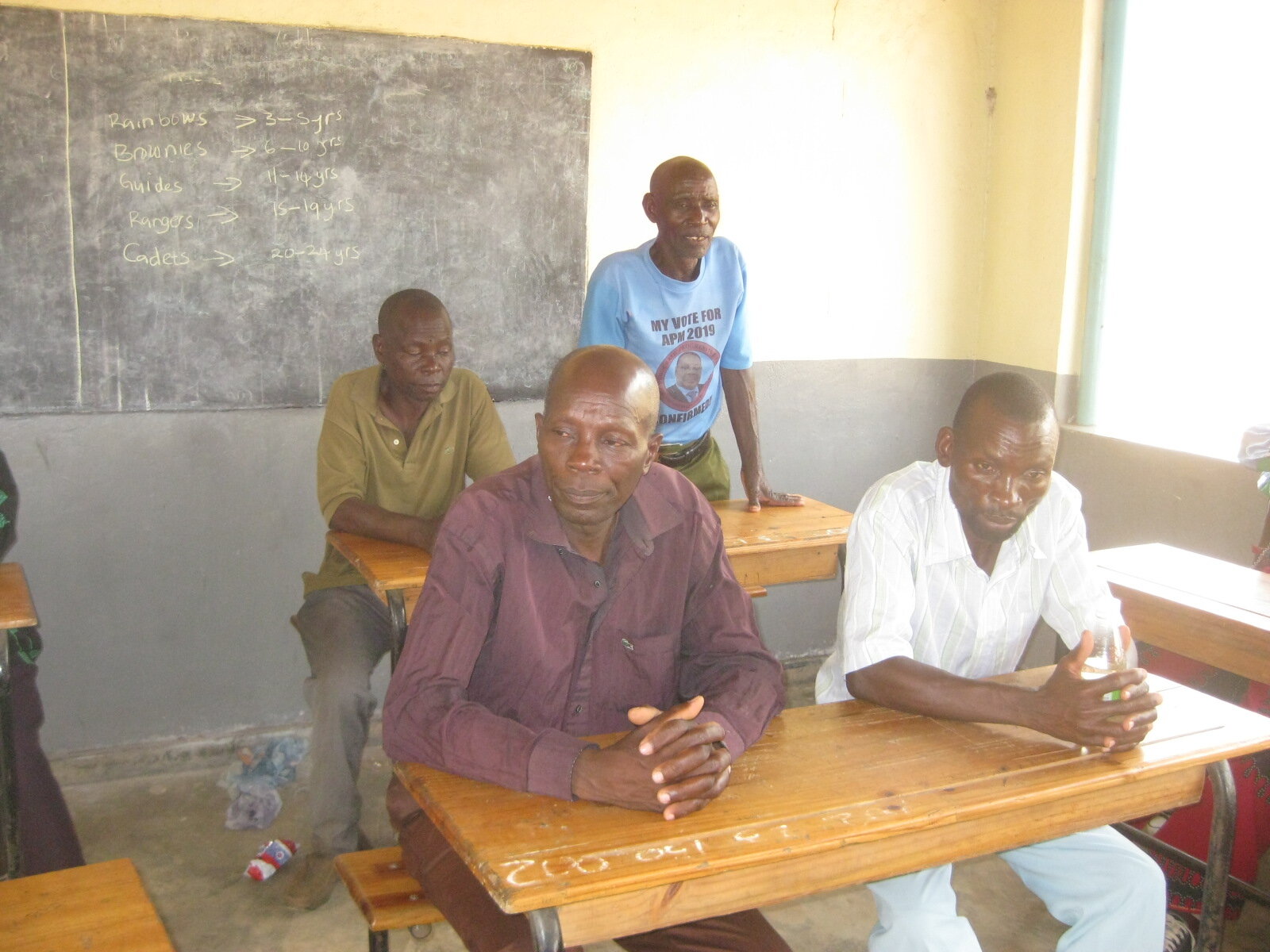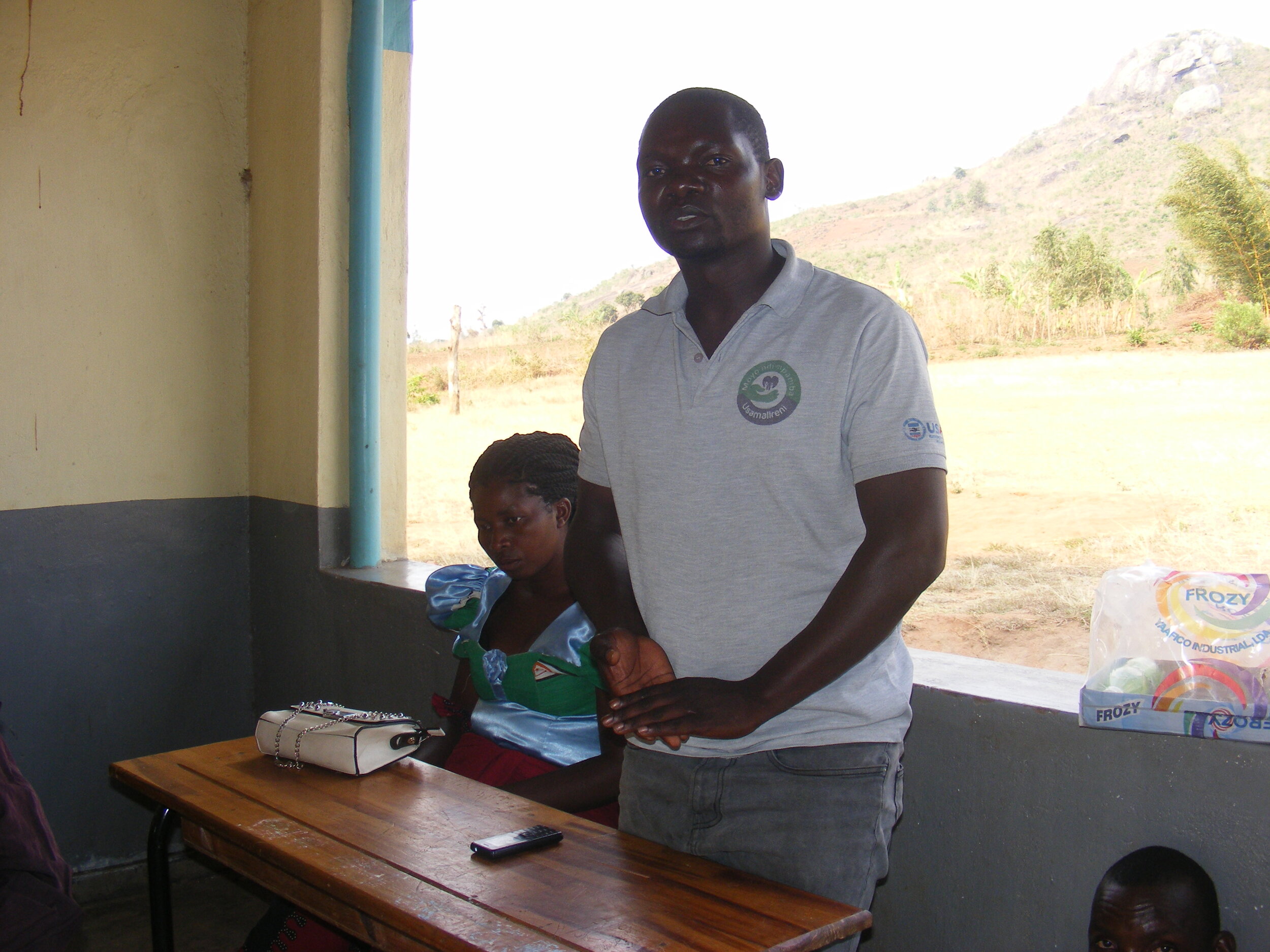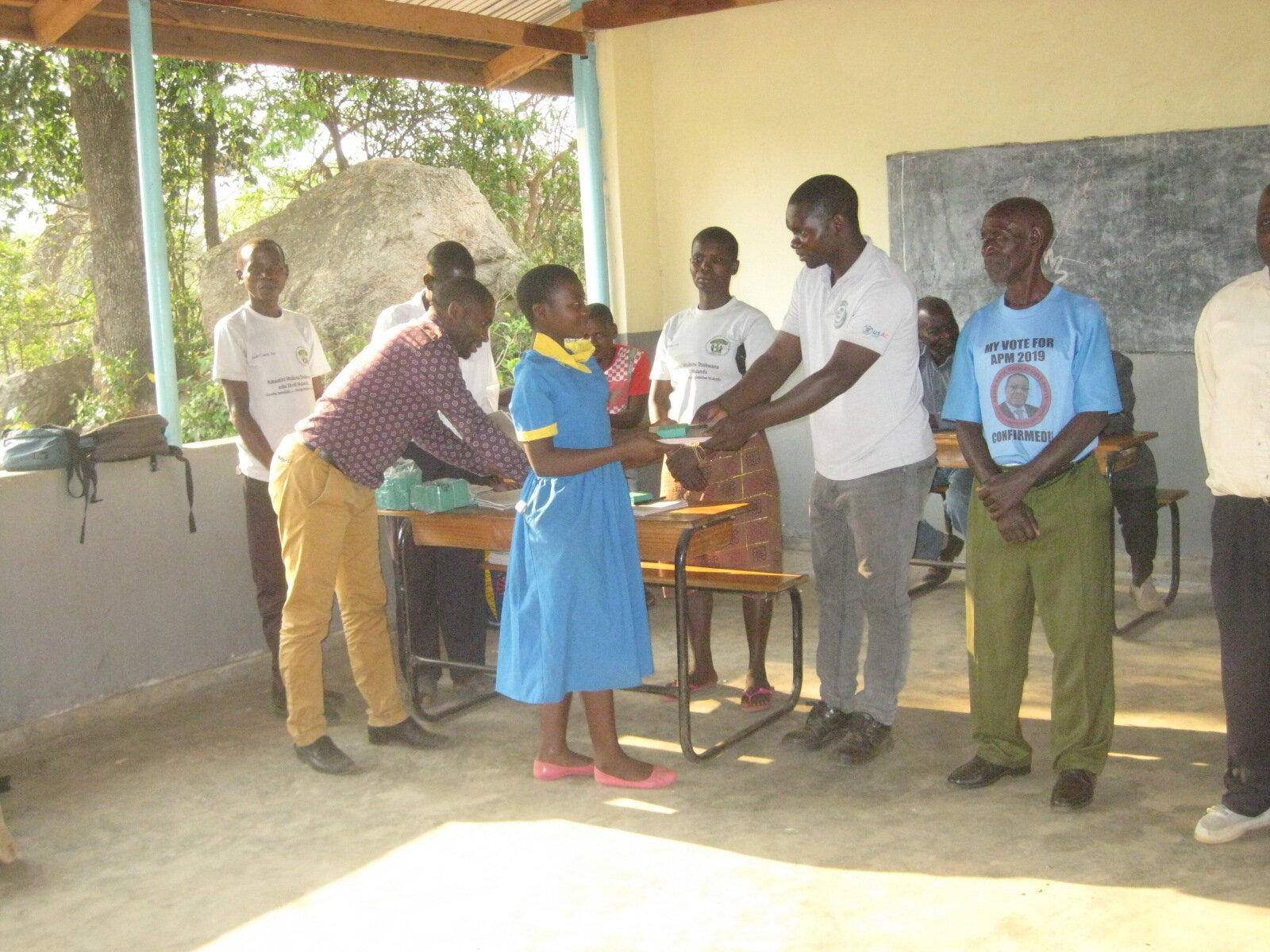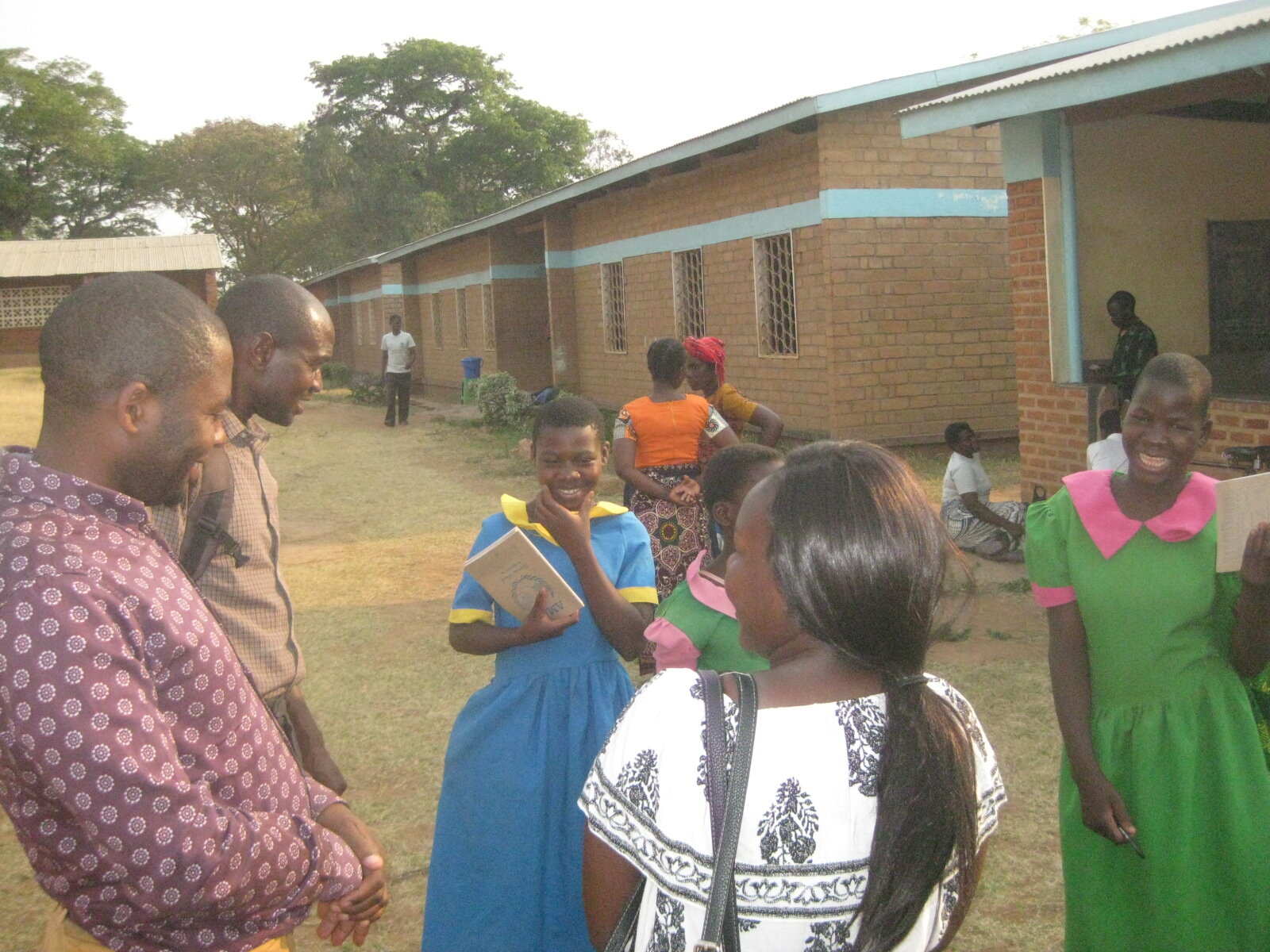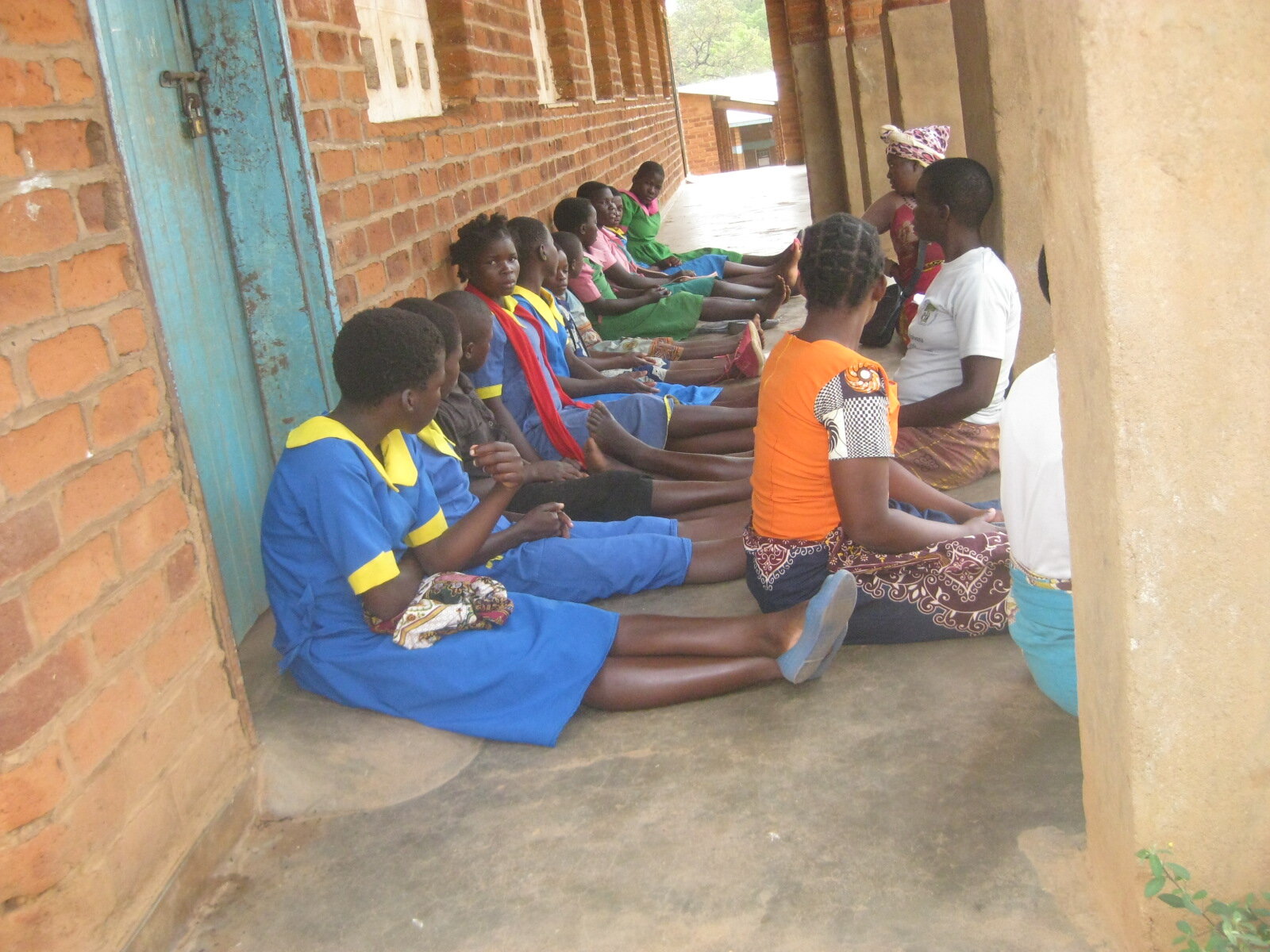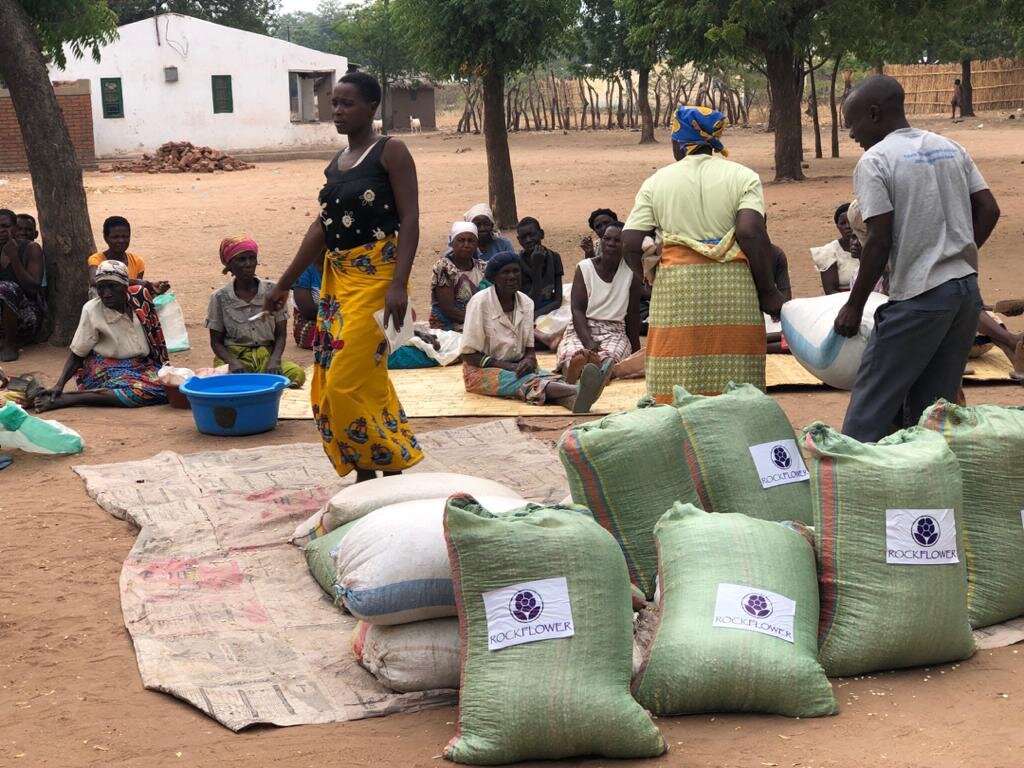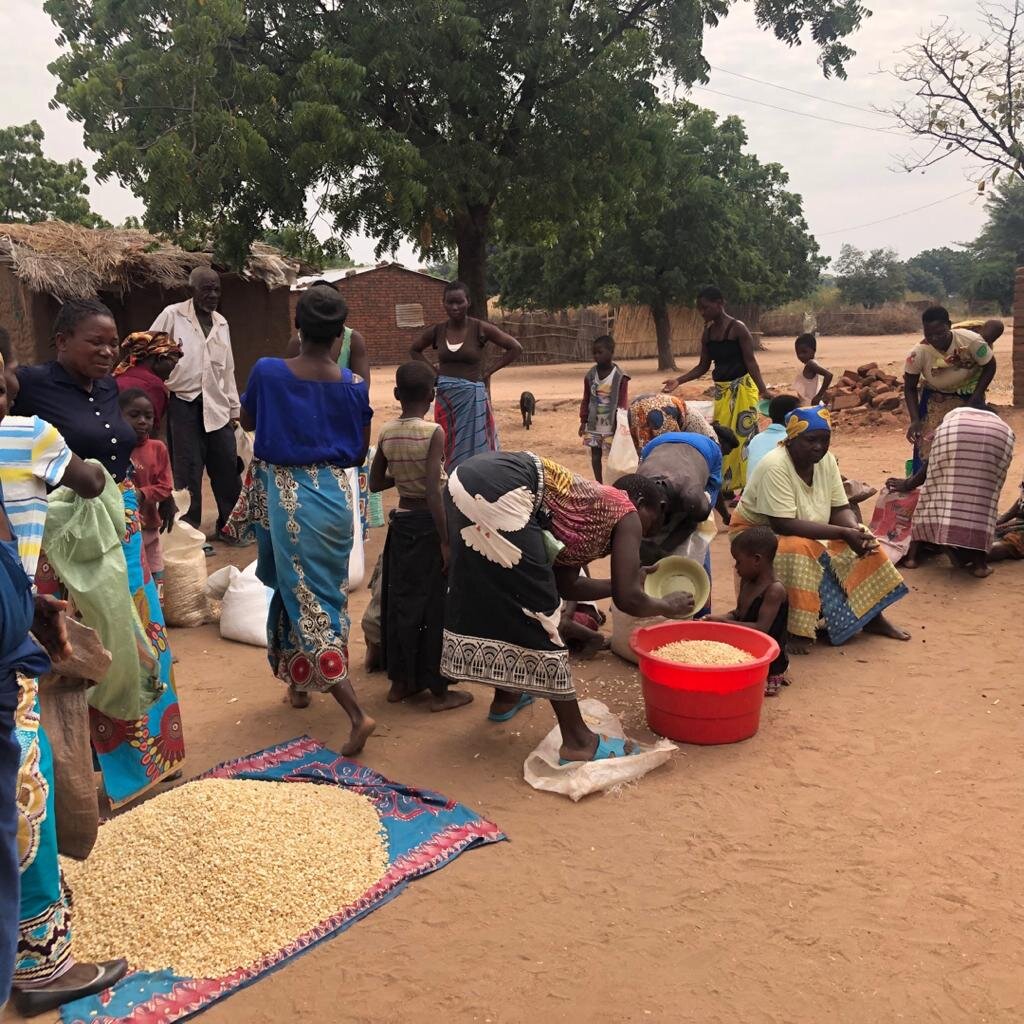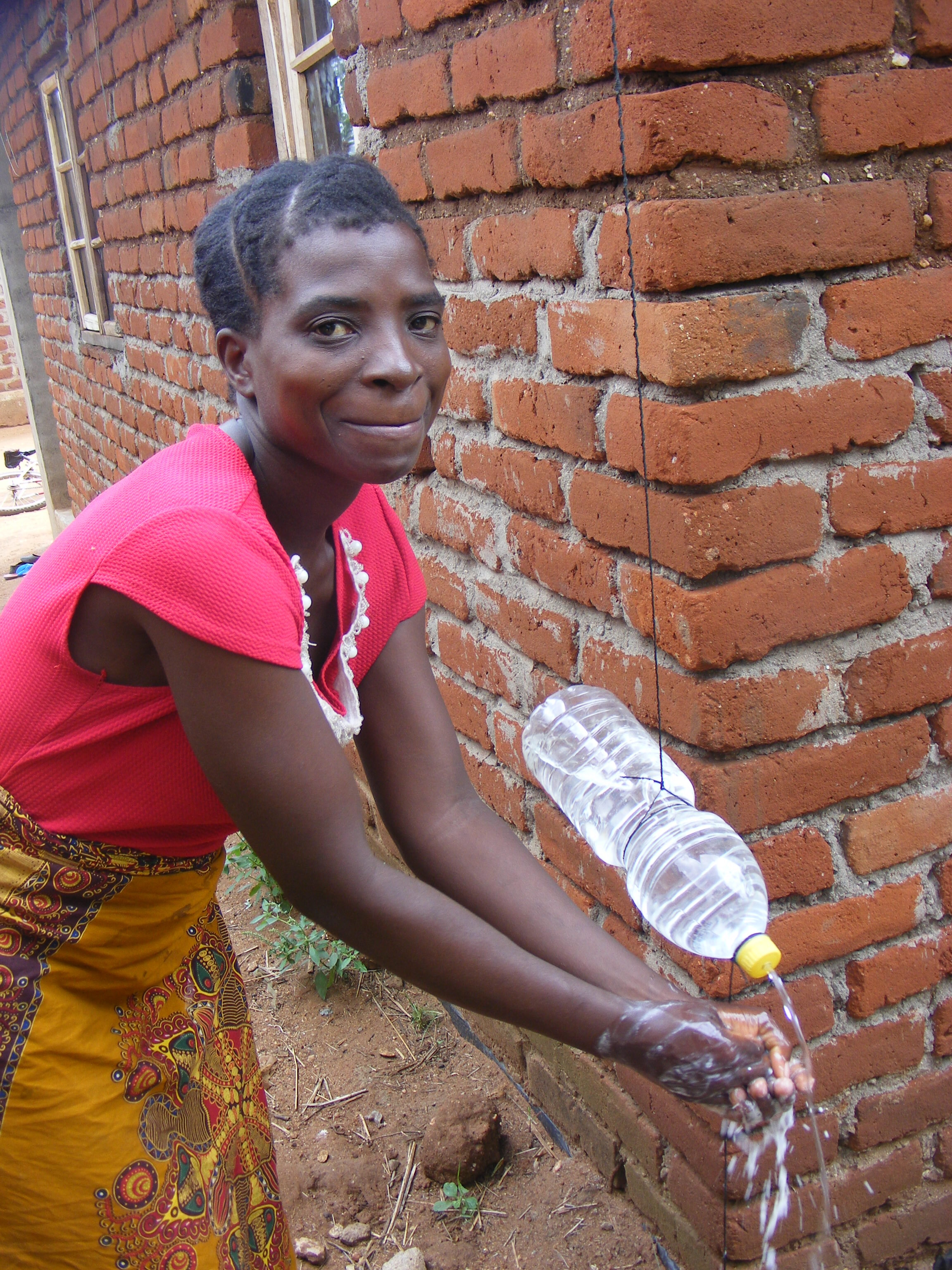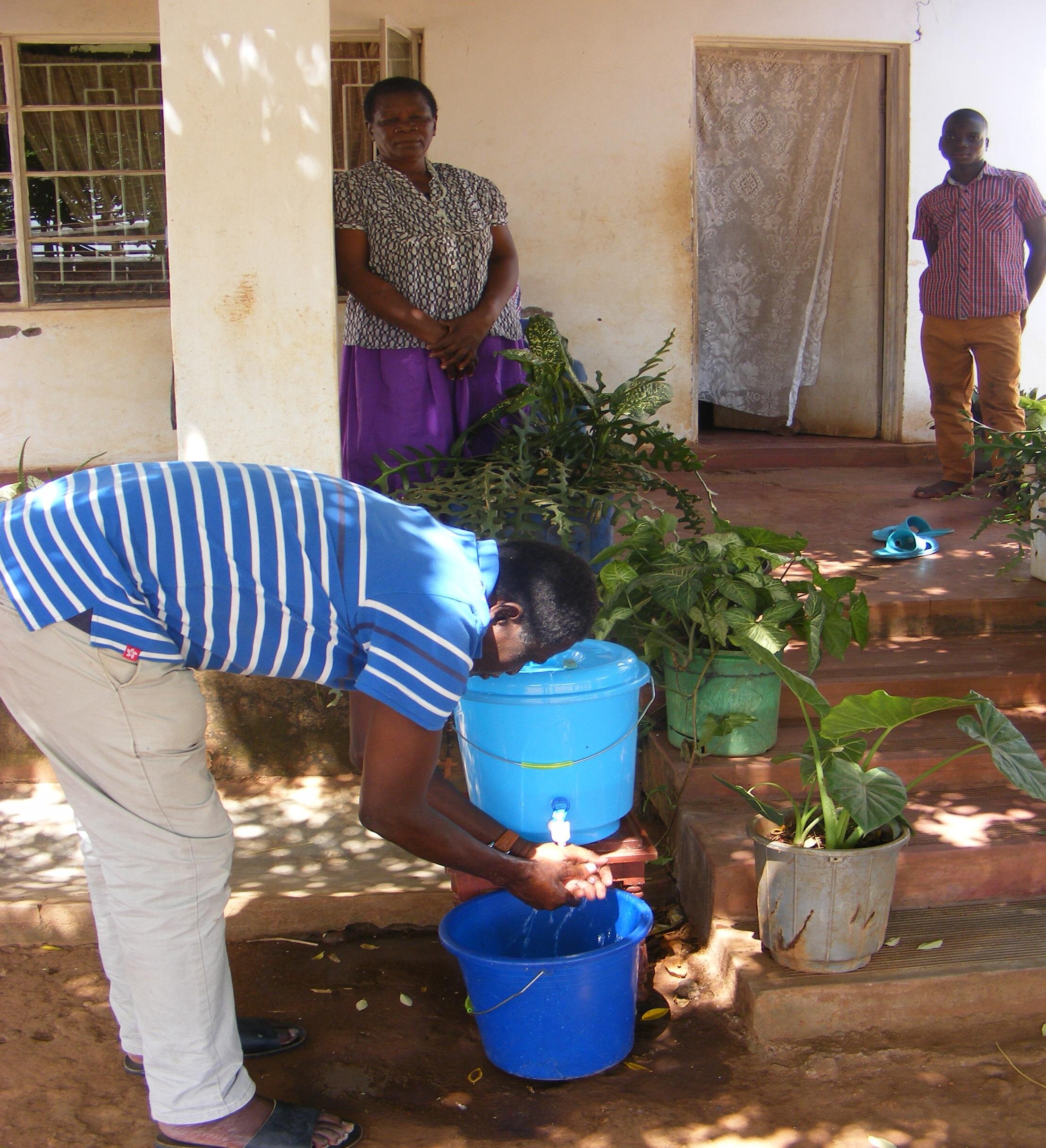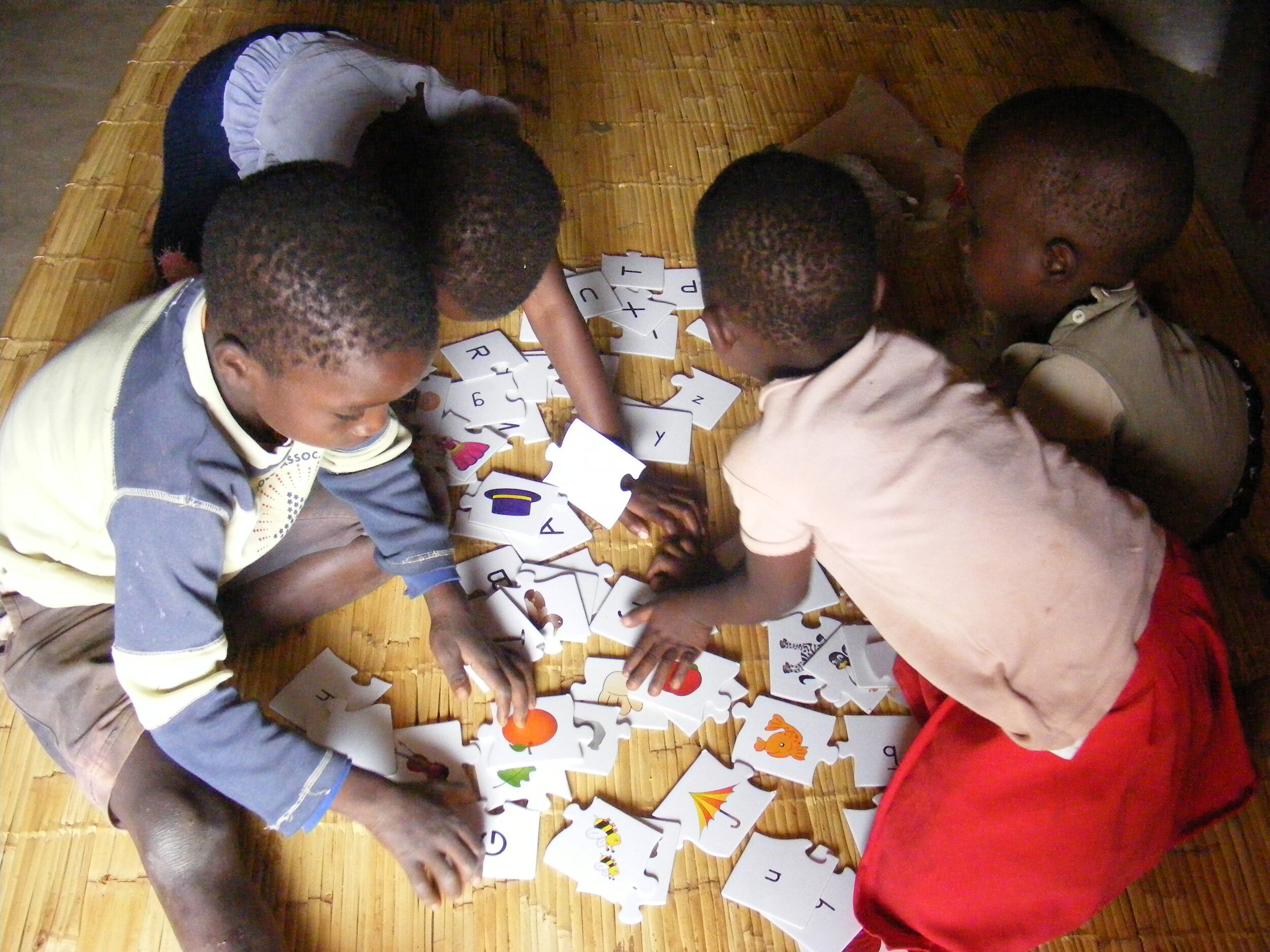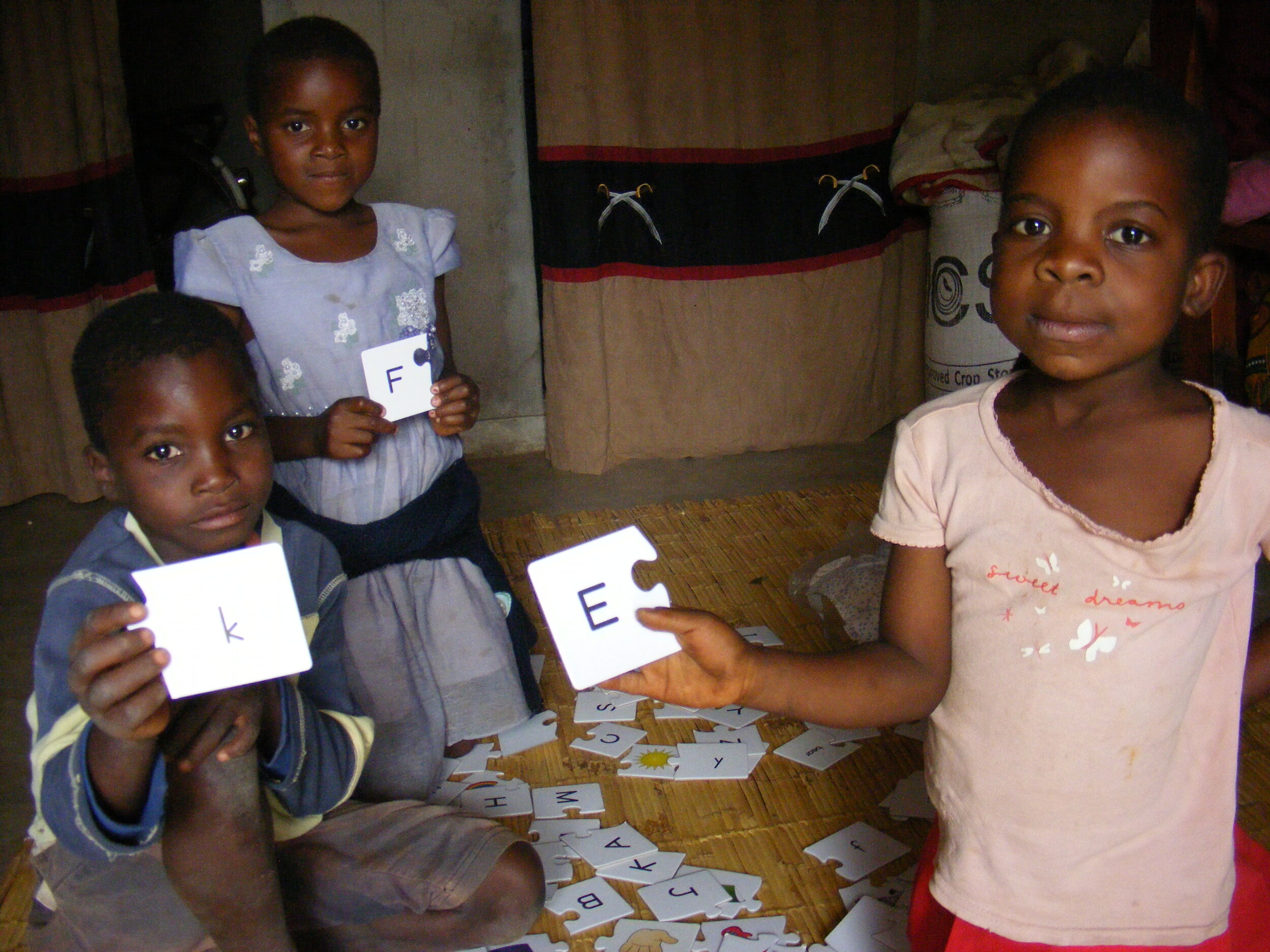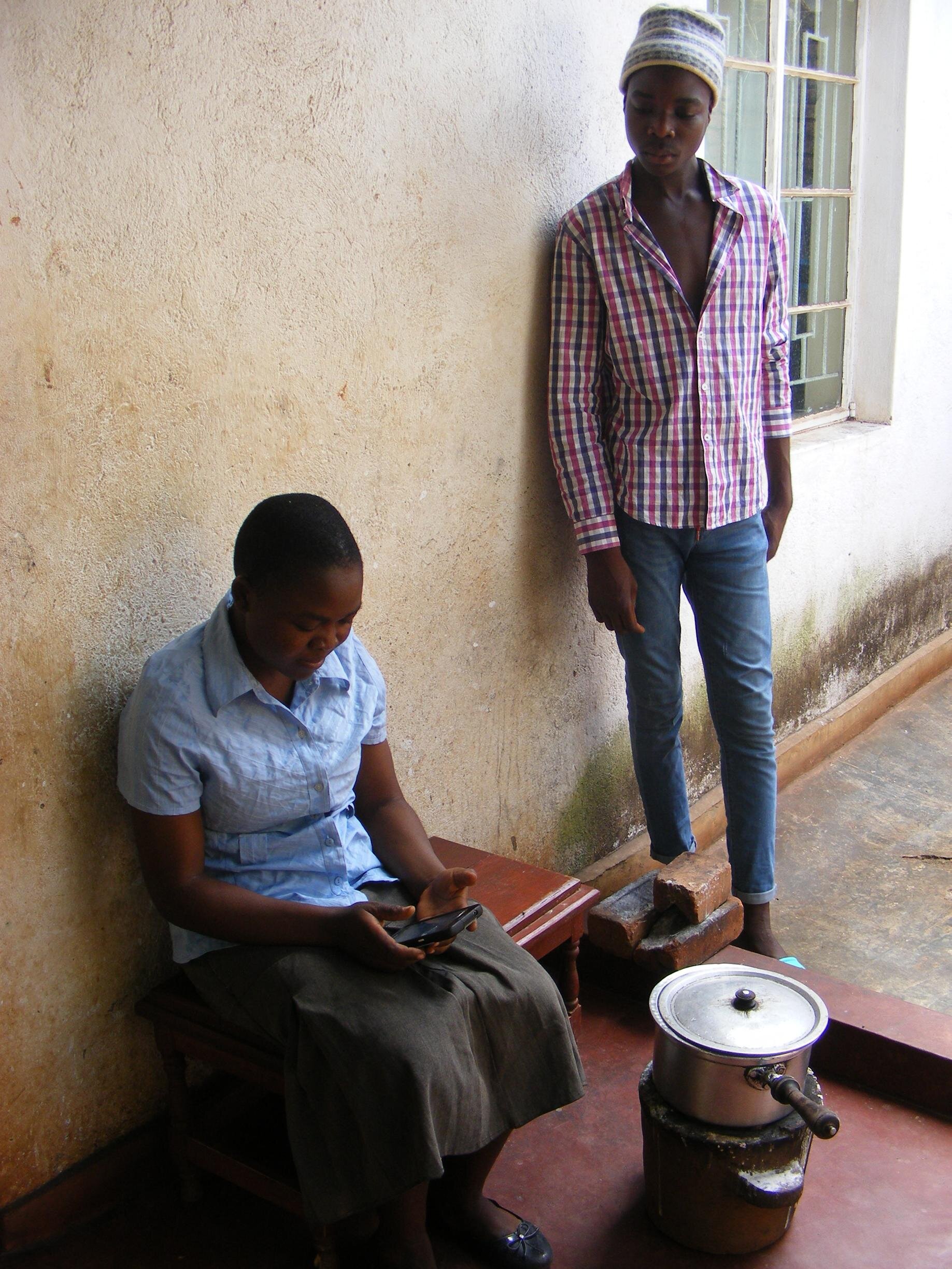Nelia Kabambe is a 17 year old single mother living in Traditional Authority Nkanda in Mulanje district, Malawi. She is one of twenty women who were given the opportunity to receive vocational skills training through a program implemented by Rockflower partner, CHICOSUDO.
Nelia (right) learning to sew alongside her baby.
Nelia lost her parents at the age of twelve, and was unfortunately left to support herself. With very few options, she was forced to leave her education behind. She made one of the only decisions that she could and decided to marry a man, and be his second wife. Despite her young age and lack of experience, she took on the role of a wife in order to survive.
In 2019, Nelia, who now had a child, was approached by a volunteer from CHICOSUDO who invited her to take part in their ‘End Child Marriage Now!!!’ program. Through this program, she received counseling on sexual and reproductive health, was provided an outlet to discuss concerns in her marriage, and received support through continued community programs.The knowledge she gained from the program allowed her to think critically about her situation, and to understand that there were other options for her. With the support of CHICOSUDO, she made the difficult decision to end her marriage, and live with her grandmother and baby. Nelia was determined to create a better life for herself and her child.
Over the past few years, Nelia has struggled to earn an income and support herself, her grandmother and her child. She is now 17 years old, and has been taking on casual jobs in order to make money whenever possible. However, through CHICOSUDO’s most recent project ‘Women Empowerment Through Vocational Skills' Nelia is learning the skills and tools necessary to become self-reliant.
Participants completing their tailoring assessment.
The goal of the project is to empower survivors of child marriages and single mothers by equipping them with skills, tools and education to support themselves and their families. Over the past few months, CHICOSUDO has worked to train twenty women in stitching, tailoring and embroidery while also providing education on sexual and reproductive rights and other emerging social issues.
The organization is now close to completing this program, which consisted of 12 weeks of training in sewing and tailoring. The women have learned how to sew by using paper, how to maintain old clothes, and how to sew their own garments. The program has been highly successful, with over 85% of the course materials covered by the eleventh week. The decision has been made to extend the program by a few weeks to ensure that all of the women have learned the necessary skills. For the course’s final project, the women will sew uniforms for underprivileged children in the community.
Not only are the participants learning these valuable vocational skills, but CHICOSUDO is also working to put a revolving loan scheme in place so that the women will have access to capital and can start their own businesses. The business loans will have an interest rate of 30% which will allow more money to go back into the fund, so that more women can access the loans. Over time, the fund will grow and so will their businesses. Upon completing the training, 85% of the women intend to start their own enterprises.
As the training comes to an end, the women, who are survivors of child marriages, are feeling hopeful and empowered by their ability to become self-reliant. Nelia is excited to complete the program and start her own business, or partner with others in the group to create a larger business. She now feels that her child will have better opportunities, and that she will be able to support her family despite all that she has been through. The work of the volunteers at CHICOSUDO has changed the lives of many women like Nelia through supporting them to leave abusive marriages, and providing them with the necessary skills to move forward and succeed on their own.







